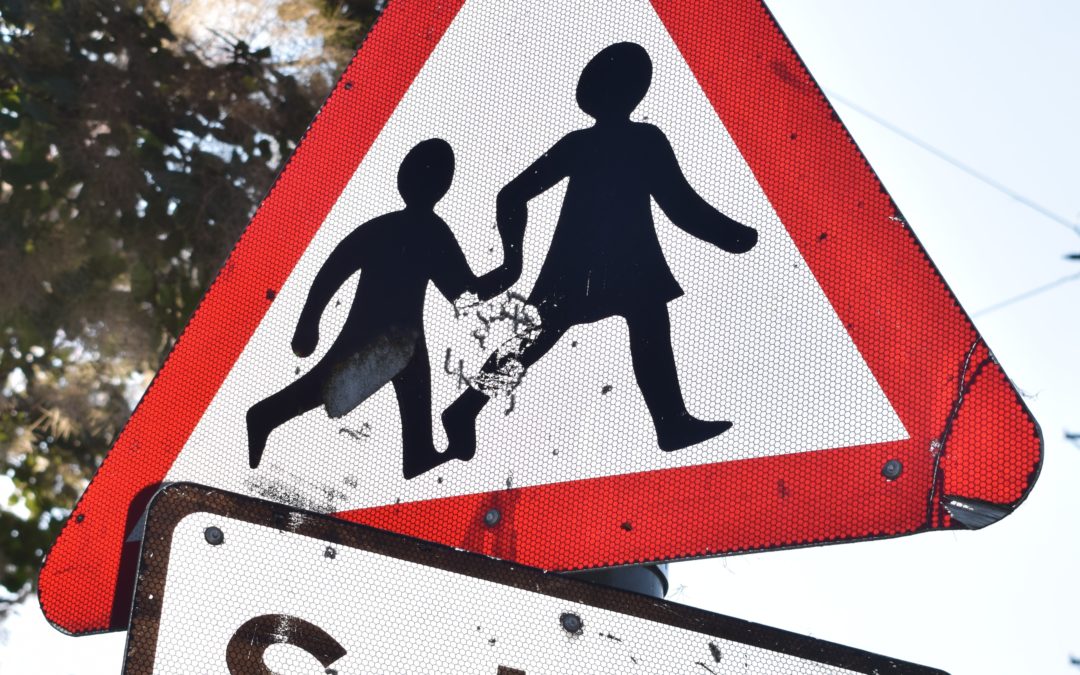Once again we are nearing the end of a lockdown; and the prospect of our kids returning to school.

Their lives have been a whirlwind of uncertainty, home schooling, missing out on seeing their friends and being cooped up at home, so the idea of venturing back into the world of school while the virus is still ongoing may cause anxiety and nervousness.
So how can we help our children navigate these changes?
Model a positive attitude
Nervousness is like a disease- it can be picked up from others! If you approach your child’s return to school with confidence and positivity, then they too will feel self-assured. You can talk through with them what they can expect in terms of hand washing, class bubbles and social distancing, to remind them of what it will be like.
Prompt them to focus on the positives by talking about how nice it will be for them to be able to see and play with their friends again.
Set a routine
Have they been spending too long each day on their Playstation, or sleeping in late? Setting a daily routine to get them back into the school day headspace can help them rewire their brains for returning. You could use the last two weeks before the schools reopen to get back into a schedule, for example by starting home schooling at 9am, with an hour break for lunch and finishing work by 3.
Discuss their worries
Some children will feel worried about returning to school. Not only will they be aware that a serious virus is still on the loose, but they may also feel nervous about venturing back into a social setting after months of being at home. As parents, our job is to help them tolerate anxiety and work through it. So, encourage them to openly discuss any fears they may have.
Regarding Covid anxieties, focus on what they can do to be safe, such as washing their hands before and after eating, and the fact that they will be kept in their own class bubbles to minimise risk.
Find out specifically why they are worried about going back to school. Write their fears down, in size order (it’s often a revelation as major worries for them may seem insignificant to you). Do not dismiss or invalidate those feelings, instead let them know that these are valid and totally normal. A fear often feels worse than the reality, so support your child calmly, kindly and firmly as they go back to school.
Stop worrying that your child has fallen behind
This may be at the top of your own worry list! However, we know the brain needs to feel calm before it can learn effectively, so your child’s wellbeing needs to be the priority before academic success can follow.
Support, reassure and comfort your child, without putting pressure on yourself or them. Kindness and patience are the key to getting through the next few months.
Give their brains space
At the end of the school day, give your child some breathing space. Rather than asking questions about their day, let everything be relaxed.
Other children might talk a little too much about worries and need help containing them so that they don’t spiral. Constant reassurance never works. Instead, ask them to write down or draw their worries. Listen, reflect and help them sit with it.
Open your ears
Listen to your child. Expect emotions and help your children name them. Don’t be tempted to try to “mend” difficult feelings, just empathise and comfort them instead.
Mention how proud you were when they coped with difficult situations in the past, in order to remind them of their resilience. Only after that should you move to problem solving. If your child cries, and expresses a wish for their old school back, let them know you share that feeling, because we all want our old life back.
Always seek support if you need it
If your kids are struggling with the following:
-Nausea
-Tense muscles and headaches
-Feeling sweaty or hot
-Breathing faster which may lead to a panic attack
-Difficulty sleeping
-Butterflies in the stomach
-Increase in crying
-Finding it hard to concentrate
-Getting angry
-Being clingy
-Having negative thoughts
-Not eating properly
..then these are signs of anxiety which you shouldn’t ignore. If you are concerned about your child’s mental health and you think they need professional support, speak to the school and your GP about the best next step. No matter how your child feels, let them know that it is completely normal to feel a mixture of emotions and that everyone feels similarly. However, also help them to realise that the current situation won’t last forever and that their feelings will change.
If you are considering counselling for you or your teenager, then leave your details: https://www.dad.info/article/counselling-with-fegans









